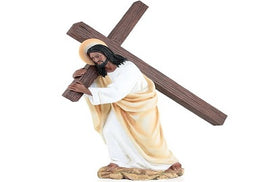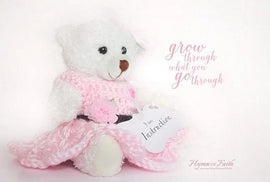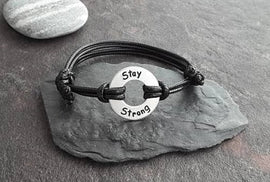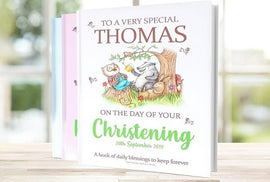25 Need-to-know Bible Verses About Parenting (Explanation Inside)

Bible Verses About Parenting

All throughout history, people have turned to the Bible for any wisdom they can glean regarding parenting. Thankfully, the Bible has a whole well of wisdom that we can draw from, whether it’s addressing parenting responsibilities, discipline, parental love, and protecting our children.
All Bible verses are quoted from the NIV translation.
Table of Contents
Bible Verses About Parenting Responsibilities
There is alot of responsibility you have as a parent to your children. The following bible verses and explanation will help you in your journey to be a good Christian parent.
“These commandments that I give you today are to be on your hearts. Impress them on your children. Talk about them when you sit at home and when you walk along the road, when you lie down and when you get up.” Deuteronomy 6:6-7
Deuteronomy finds the nation of Israel, who had been wandering in the wilderness for forty years after the exodus from Egypt, about to finally enter the land that God promised to the descendants of Abraham.
The group of people about to enter the Promised Land was not the same people who left Egypt, so before they enter God reminds them of the Law and the covenant they entered into with him.
That’s not the only thing he does, though; God implores them not to forget what he has done for them. More than that, several times in Deuteronomy he tells parents to not forget, and to pass it on to their children.
To make it apart of their lives. Telling their children about the God who delivered them wasn’t just for religious gatherings, it was to be something that they reminded their children of all the time.
As we parent our children, we are called to do the same. Jesus calls us to love the Lord our God with our everything and to love our neighbours as ourselves. It is our responsibility to live these out as an example to our children.
“The living, the living—they praise you, as I am doing today; parents tell their children about your faithfulness.” Isaiah 38:19
This is from a prayer of King Hezekiah of Judah, whom God had healed and brought back from the brink of death. He pens it down to remember what God had done for him, and also to pass it on to the generations that came up after him. His faithfulness in writing it down is why we are able to read it today.
Likewise, parents are supposed to pass down knowledge of God’s faithfulness to them to their children. Loading our children up with mountains of knowledge about God does not carry the same weight as reminding them of our testimony and what God has done for us personally.
Our telling of the faithfulness of God will help bolster our children’s faith, so that they can learn to lean on his faithfulness and recognize how he works in their lives.
“After the festival was over, while his parents were returning home, the boy Jesus stayed behind in Jerusalem, but they were unaware of it.” Luke 2:43
It can’t have been easy for Mary and Joseph to raise Jesus. Being tasked with rearing and teaching the sinless Saviour would be enough to make any parent balk.
However, they had a large measure of trust in him as well—trust that he would know when the rest of the group was leaving Jerusalem to go back to Nazareth when he was twelve. They trusted that he would be in the crowd somewhere, even if he wasn’t walking with them.
Jesus, however, stayed behind in Jerusalem. Mary and Joseph realized he was missing and went back to Jerusalem, and they found him in the Temple, sitting and speaking with the teachers.
While the story ends well, what’s impossible to gloss over is that Mary and Joseph had a responsibility to, at the very least, account for Jesus in the crowd.
We have a responsibility to keep our children as safe as we possibly can. Not to helicopter parent them, but to at least know where they are and who they’re with. No matter how much we trust our children, while they are in our care the responsibility remains.
“Joseph also provided his father and his brothers and all his father’s household with food, according to the number of their children.” Genesis 47:12
When Joseph’s brothers sold him into slavery, they were probably never expecting to see him again. They must have been quite surprised to realize Joseph was in charge of doling out food to nations in the middle of a famine, and also surprised that Joseph was merciful to them.
However, what they could not have known was that, in the time that Joseph had been apart from them, he became a husband and a father.
When Joseph gave his father’s household food, he did it according to the number of children each family had. Not only did Joseph forgive his brothers and reconcile with them, but he made sure that their children were provided for in the same way that his children were.
Food and water are essential for healthy childhood development. As parents, it is our responsibility to provide these things for our children.
More than that, it is our responsibility to swallow our pride and ask for help if we run into hard times, whether we appeal to family or to social programs for help.
“Then Naomi took the child in her arms and cared for him.” Ruth 4:16
When Naomi’s sons died, leaving her in a foreign country with her daughters-in-law who had no offspring, it would’ve been so easy for her to lose faith.
When she left back home for Israel, one of her daughters-in-law, Ruth, went with her and stayed with her. It was because of Naomi’s idea that Ruth encountered and married Boaz, her kinsman-redeemer, and Naomi’s faithfulness blessed her with a grandson—Obed, the father of Jesse, the father of David.
Naomi didn’t squander the gift of a grandchild; the Scriptures are careful to note that he cared for Obed after he was born. How do we care for our children and grandchildren today?
Is it enough to make sure that they have the newest, coolest gadgets, or does care involve building a bond with them so that they will always feel safe with you?
Your children may not remember the noisy light-up toy from their third Christmas, but they will remember that they feel secure with you when the hard times come because you cared for them.
Bible Verses About Parenting and Discipline
Punishing or disciplining your children when they have done something wrong is painful to do but I hope the following scripture will help you understand how to do it in a Godly Christian way.
“A fool spurns a parent’s discipline, but whoever heeds correction shows prudence.” Proverbs 15:15
Nobody likes discipline in the moment. Discipline means that you have done something that requires correction, and there are few things that are as difficult as admitting when we were wrong.
If it’s hard to do as an adult, when we can logically process where we went wrong, imagine how much more difficult it must be to a child who is being disciplined for something for the first time.
As parents we are called to discipline our children well, which requires that we walk them through why they’re getting disciplined in the first place.
It’s not easy to discipline your child, but it is a process that will pay dividends. Control your emotions, get on their level, and teach them not only the correction, but what being corrected well looks like. If you are successful, both you and your child will reap the rewards.
“Know then in your heart that as a man disciplines his son, so the Lord your God disciplines you.” Deuteronomy 8:5
This verse tells us that God disciplines us like a man disciplines his son. That, however, begs the question—how does God discipline us? Do we recognize it, and do we see shades of it in how we discipline our own children?
God’s discipline is focussed on correction and training towards righteousness (2 Timothy 3:16-17). He does not discipline out of proportion with what we have done, and there is a difference between discipline and consequences.
Repentance on our part after discipline does not absolve us from the consequences of our actions.
Above all, God disciplines us because he loves us (Proverbs 3:12). Note that discipline is not the same as punishment; punishment involves acting in retribution for a wrong, while discipline is training someone to obey rules or a code of behaviour.
Discipline looks for more than just punishment, and that’s how we should aspire to discipline our children.
“No discipline seems pleasant at the time, but painful. Later on, however, it produces a harvest of righteousness and peace for those who have been trained by it.” Hebrews 12:11
Discipline can hurt. Discipline can hurt not because whoever is disciplining us is doing it to cause us pain, but because it involves confronting a behaviour we might have settled into comfortably or don’t want to change.
Discipline, however, brings us through a refining fire and to the other side, where righteousness and peace meet us.
The way we discipline our children should also lead them to righteousness and peace.
As Christians, we should discipline our children to show them where the boundaries of acceptable behaviour are, and what behaviour of one who loves Jesus looks like. We don’t discipline because it’s fun, we discipline because it’s necessary.
Note that discipline doesn’t only lead to righteousness, it leads to peace. Our children shouldn’t act our after they’re disciplined; as they take our words to heart, they should be more and more at peace. God’s discipline doesn’t lead to turmoil or chaos, and neither should our own.
“Discipline your children, for in that there is hope; do not be a willing party to their death.” Proverbs 19:18
It can be a little strange to think that there’s hope in discipline. Taking time to discipline your children, however, says to the world that you care about them.
You care about making sure that thy grow up well, and you care that they go on to succeed when your days of raising them are in the past.
There is also hope because how you discipline them will also affect how they discipline their own children.You are the prime example that they have for how to parent and discipline well, so good and measured discipline will not just impact your children, but also your grandchildren.
“Do not be a willing party to their death” is strong language, but failing to rear and discipline children well can lead to disastrous, heartbreaking consequences. Too many young people die or are seriously injured because of unwise choices they make before adulthood. Disciplining your children well is a difficult habit to develop, but it’s one worth growing for your children’s sake.
“Discipline your children, and they will give you peace; they will bring you the delights you desire.” Proverbs 29:17
Parenthood is undoubtedly one of the most stressful roles that we can take on. It is fraught with worries and pain, and there is no guarantee that your child will grow into the person that you tried to raise them to be.
At the same time, parenthood is one of the most rewarding roles that we can take on over the course of our lives. As challenging as it may be, watching our children and the children in our circle of influence grow in wisdom and maturity is one of the most satisfying feelings we can know.
Part of that is the peace that it brings us—peace brought on by knowing they listened to the discipline you raised them with.
Raising your children well, including discipline, pays dividends for you as you age and they come into independence. It will bring you peace, knowing that you have raised your children to be loving, responsible, and truthful to the best of our ability.
Bible Verses About Parenting With Love
Parenting with love will help your children to grow up healthy and ready to serve our Lord. Here is some scripture about this.
“Children’s children are a crown to the aged, and parents are the pride of their children.” Proverbs 17:7
Reading the Bible, it can be easy to assume that the main take away regarding parenting is to discipline your children, keep them on the straight and narrow, and keep them out of trouble. However, this verse draws that assumption into question.
This verse paints a multi-generational picture f familial love, as brief as it is. The first half tells us about a family dynamic where parents haven’t alienated their children, parents who raised their children with love and care, because their children’s children know them. Their grandchildren are their crown.
The second half of the verse says that, “parents are the pride of their children”. Parents are capable of raising their children with such love that their children become proud of them. This is not the product of a weak relationship; it’s the result of a relationship built on love, where mutual respect can be developed.
“And he will go on before the Lord, in the spirit and power of Elijah, to turn the hearts of the parents to their children and the disobedient to the wisdom of the righteous—to make ready a people prepared for the Lord.” Luke 1:17
This verse was prophesied to Zechariah by an angel, telling him about all that his son John the Baptist would do to get people ready for the Messiah’s arrival. John was to go on to do great things in his ministry—including turning the hearts of parents to their children.
What does that mean? Perhaps it meant that God’s chosen people were prioritizing other things over their children, or that the people had forgotten to engrain the knowledge of God and what he had done for their ancestors in their everyday life.
This verse ties the fact that parents’ hearts turning towards their children is a sign that people are prepared for Jesus. Our children are a gift of God, and our hearts being directed towards them and raising them with love is a sign that God is with us.
“When the water in the skin was gone, she put the boy under one of the bushes. Then she went off and sat down about a bowshot away, for she thought, “I cannot watch the boy die.” And as she sat there, she began to sob.” Genesis 21:15-16
Hagar and Ishmael hold an interesting place in Abraham’s life and in Scripture. Hagar names God in Genesis 16:13, saying, “You are the God who sees me,” after he comes to her and Ishmael’s aid when Sarah, Abraham’s wife, sends them away.
Ishmael was born several years before Abraham’s other son, Isaac, and though he wasn’t apart of God’s plan to make Abraham a great nation God told Ishmael that he would make a great nation of him as well (Genesis 21:18).
After Isaac was weaned, Sarah asked Abraham to send Hagar and Ishmael away—again. So, following the prompting of God, Abraham did. The bread and water he gave them didn’t last long in the desert, and Ishmael’s condition was so poor that Hagar was convinced he was going to die.
She was so convinced that she put him in the shade of some bushes and moved away so that she doesn’t have to see it happen.
As a slave woman in Abraham’s house, all Hagar ever did is look out for and love her son.
Hagar, out of love, did whatever she could to benefit her son when they were in Abraham’s house, and when they were in the wilderness she kept him alive and appealed to God on their behalf—twice.
“Israel said to Joseph, “I never expected to see your face again, and now God has allowed me to see your children too.”” Genesis 48:11
Imagine how Jacob (Israel) must have felt when his other sons told him that Joseph, the one he loved most, was dead. While Joseph’s brothers presented their father with the coat Jacob had given him, covered in goat’s blood, Joseph was on his way to be a slave in Egypt.
Jacob was so convinced by the story his sons told him that, when Joseph’s brothers return from Egypt during the famine saying he was alive, Jacob was stunned and couldn’t believe them (Genesis 45:26).
However, Jacob’s sons convinced him of the truth, and even God told Jacob not to be afraid of going to Egypt because God would go with him and “Joseph’s own hand will close your eyes” (Genesis 46:4).
Jacob loved Joseph the most. This caused strife between Joseph and his brothers, discord that could only be brought about by parental favouritism.
There is such a thing as parenting with too much love, and Jacob’s love for Joseph clouded his judgement. Let’s examine our behaviour to ensure we aren’t blatantly favouring one child over another.
“I was young and now I am old, yet I have never seen the righteous forsaken or their children begging bread. They are always generous and lend freely; their children will be a blessing.” Psalm 37:25-26
This Psalm was written by David. Some scholars think it was written towards the end of David’s life as he looked back at God’s faithfulness towards the righteous that he witnessed, including how the righteous pay the blessing forward.
David tells us about their character—how they are always generous and lend freely—but it’s what he says about their children that especially stands out.
David doesn’t expand on how the children of the righteous will be a blessing, but in his mind, because they have been raised in love and with the example of faithful and righteous living, they will grow to be a blessing.
This is the highest example that we should strive towards when raising our children. Not raising them to be the most knowledgeable about the Bible, but to raise them with a loving example of righteous faith.
Bible Verses About Protecting Your Child
As parents we have to protect our children from danger. The scripture below will help you how to do so in a Christian way.
“To have a fool for a child brings grief; there is no joy for the parent of a godless fool.” Proverbs 17:21
When we take on the task of parenthood, it’s important that we bring up our children rooted in love and wisdom. We can’t just let them go off on their own way with no guidance, or give them no responsibilities or discipline.
We aren’t parenting children, we are parenting future adults who will contribute to society and potentially have families and relationships and responsibilities of their own someday.
Protecting our children and making sure they reach adulthood is a high calling, one that can be difficult as the world keeps changing and looking different than it did when we were children.
However, not being disciplined in this matter only does a disservice to our children. If no boundaries or expectations are set, then they don’t know what to strive for or what is acceptable.
Many parents have little to no contact with their children once they are grown. Sometimes, despite our best efforts, our children can turn away and make foolish choices. Don’t feel like a failure if this happens; if you did your best to protect your child as they grew, there’s no need for shame.
“I said to their children in the wilderness, “Do not follow the statutes of your parents or keep their laws or defile yourselves with their idols.”” Ezekiel 20:18
God recognizes when we are not doing good towards our children. His heart was grieved when the nation of Israel rebelled against him in the wilderness after the exodus, their hearts devoted to idols instead of the God who had delivered them. God knew that, because of the actions of their parents, the next generation of Israel was far off from him.
At the time, God was literally providing food and water for them and was leading them every day. However, the people of Israel still grumbled and complained, and their worship of other idols led their children astray. God was emphasizing that children need to be protected not only physically, but spiritually.
We have the same task today. Protecting our children is more than keeping them physically safe, it’s recognizing our idols and teaching our kids to honour God above anything else. Our kids will notice if we are “too busy” to send time with God, or how we allocate our money. What example are we setting for them spiritually?
“When they had gone, an angel of the Lord appeared to Joseph in a dream. “Get up,” he said, “take the child and his mother and escape to Egypt. Stay there until I tell you, for Herod is going to search for the child to kill him.” So he got up, took the child and his mother during the night and left for Egypt, where he stayed until the death of Herod. And so was fulfilled what the Lord had said through the prophet: “Out of Egypt I called my son.”” Matthew 2:13-15
After the wise men visited Mary, Joseph, and Jesus, Joseph once again had another dream. It was an angel, passing a message from Jesus’s heavenly father to the man tasked with rearing and protecting him on earth. Joseph and his small family were no longer safe; if they stayed in Bethlehem, an edict from Herod would result in Jesus’s death.
Because Joseph trusted God, Joseph and his family left immediately for Egypt as soon as he woke up. They stayed in Egypt until God told Joseph it was okay to return to Israel after Herod had died. Joseph knew Jesus wasn’t his biological son, but when he chose to stay with Mary he also chose to protect Jesus.
How far are you willing to go to protect your child? Any parent should answer, “As far as I need to.” Our children are entrusted to us by God, and as followers of Jesus we should grasp how serious the responsibility is. Let us protect our children with the seriousness that being their parents require.
“By faith Moses’ parents hid him for three months after he was born, because they saw he was no ordinary child, and they were not afraid of the king’s edict.” Hebrews 11:23
Every day, Moses’s parents heard the cries of other people as their children were taken from them. They had to live with the knowledge that Hebrew baby boys were being thrown into the Nile to die. When Moses was born, they must have been apprehensive, but they chose not to fear.
By faith, Moses’s parents hid him and protected him for as long as they could. They were not afraid of Pharaoh, and Moses’s mother even had the opportunity to nurse him after Pharaoh’s daughter pulled him from the Nile.
Sometimes protecting our children can be scary. It can lead us to consider scenarios that e might never had otherwise, like where to live or what job to choose or what school to send them to. However, do not be afraid. You will never regret acting in your child’s best interests, especially to protect them.
“Fathers, do not exasperate your children; instead, bring them up in the training and instruction of the Lord.” Ephesians 6:4
Controlling our emotions or tempers when our children are frustrating us can be difficult. Sometimes our hearts take a prideful position when our children seem to resist us, and acting on that pride can do more harm than good.
Paul’s advice here—do not exasperate your children—protects them more than you might think. If you minimize how often you exasperate your children, it means that they will be less likely to turn somewhere else for advice or guidance.
It means they will be more willing to come to you with their struggles, and that they will be more likely to listen to you when it comes to matters of faith.
Don’t lose heart and get frustrated if it feels like your children never listen to you. Be patient, be present, and be loving, and a day will come when they come to you without any prompting. Exasperating them will not protect them, and it won’t make you feel any better, either.
Conclusion
Being a parent is challenging and rewarding. May we strive to parent our children with love and respect, especially in the world that we live in today, and foster in them a faith that cannot be put out.
SHARE:






















